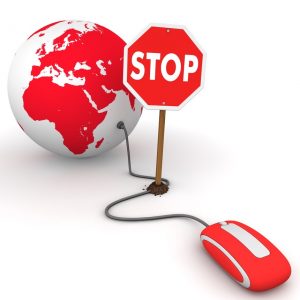Saudi Arabia calls for new international body to censor the Internet
 You’ll no doubt be familiar with The Innocence of Muslims, the controversial film that has angered Muslims across the Middle East, sparking riots and leading to several deaths.
You’ll no doubt be familiar with The Innocence of Muslims, the controversial film that has angered Muslims across the Middle East, sparking riots and leading to several deaths.
It’s unlikely you’ll have actually watched it, although the more curious among you may have caught some of it on YouTube, where the film is still freely available -- provided, of course, you’re not reading this in one of the countries where Google has blocked it, specifically Libya, Egypt, India, Indonesia, and Malaysia. Russia recently banned the film, too, which unsurprisingly also is not available to watch in Iran, Pakistan, or Afghanistan, where they’ve chosen to go a step further and block YouTube entirely.
The truth is, pretty much every one of the Muslims up in arms about the film won’t have watched it either (I’ve foolishly sat through the full 74-minute version, by the way, and it’s an atrocious piece of film making), because the movie doesn't so much anger them, as the idea of it. The Quran and other Islamic teachings state expressly that Muhammad is not to be depicted in any way, and The Innocence of Muslims not only has an actor playing him, but shows the prophet as a fool, a fraud, insane, and a sexual deviant. You can understand why Muslims would be rather upset about it all.
Despite mounting pressure, including from the White House itself, Google refused to pull the film because it doesn't violate policies. Robert X. Cringely gave his view on the situation here, but the simple truth is Google is trapped between a rock and a hard place. If YouTube had censored The Innocence of Muslims, given in to the pressure, that would have left the company vulnerable to the "heckler’s veto", leading potentially to a wide range of other content being pulled from the site. What’s harmless to one person, might be highly offensive to another and it’s all very subjective.
Inevitably, Google’s stance didn’t go down at all well it certain countries and according to the Telegraph, the Saudi government recently made a submission to the World Telecommunications Policy Forum, a UN body hosting forthcoming international talks on internet governance, calling for the creation of a new overseer designed to censor offensive content on the Internet.
The submission reportedly states that the incident is "an obvious example" of the need for greater international cooperation to restrict this type of content, and that "any reasonable person would know that this film would foment violence and, indeed, many innocent persons have died and been injured with this film as a root cause".
The submission goes on to add: "This behavior, along with other malicious and criminal activities such as child pornography, identity theft, spam, denial of service attacks, and malware aimed at destroying or crippling businesses, inter alia, must be addressed by states in a collaborative and cooperative environment and strongly underscores the need for enhanced cooperation".
What’s your view on the Saudi government’s submission? Is it a fair and sensible one, or another example of a restrictive nation trying to undermine liberal Western values and freedom of speech on the internet? As always, leave your comments below.
Photo Credit: Matthias Pahl/Shutterstock